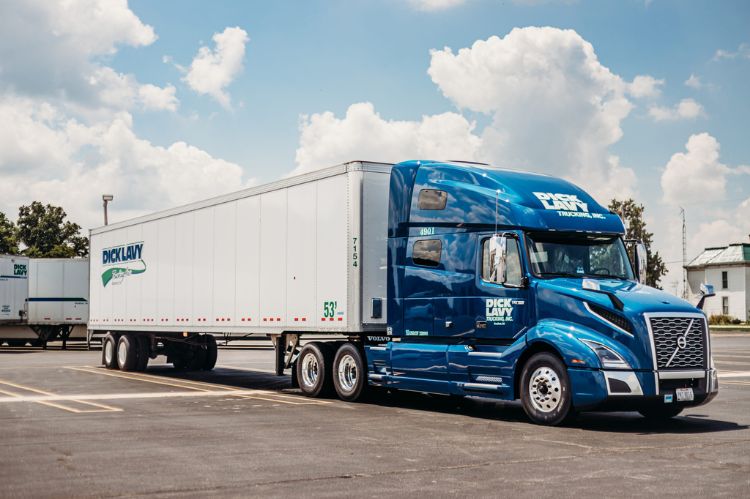So you’re ready to take your trucking business to the next level, but aren’t sure whether to go with a flatbed or dry van trailer. It’s an important decision that depends a lot on what kinds of loads you want to haul. Either one can be a great choice, you just have to figure out which is the best fit for your needs. As a small business owner, you know every decision matters when it comes to your bottom line and growth.
Before you drop a ton of cash on a new trailer, take a minute to think through how you’ll use it. A flatbed lets you transport oversized or oddly-shaped cargo, but requires more work to secure loads. A dry van keeps things simple but limits you to standard box-shaped hauls. Weigh your options carefully.
Pros and Cons of Flatbed Trailers

If you’re trying to decide between flatbed trailers or dry van trailers for your trucking business, consider the pros and cons of each.
Flatbed trailers offer some significant benefits. They can haul oversized loads that won’t fit in a dry van. Things like construction equipment, pipes, steel coils or beams. Flatbeds also provide easy access for loading and unloading since the cargo is exposed. However, your freight will be unprotected from the elements, and flatbeds typically require more securement to keep the load in place.
On the other hand, dry vans keep your cargo sheltered and secure. They can haul smaller packaged goods and palletized freight. Dry vans don’t require special equipment for loading and unloading either. The downside is that dry vans have less capacity for oversized items. They also require rear-end loading and unloading, which can take more time.
Cost Considerations
Operating costs are another essential factor. Flatbed trailers tend to cost slightly more upfront and in maintenance due to their heavier frames and extra equipment. However, flatbeds may allow you to charge higher freight rates for oversized loads. Dry vans typically have lower upfront and operating costs but may limit the types of higher-paying freight you can haul.
In the end, choosing between flatbed trailers or dry van trailers comes down to your specific business needs and priorities. Evaluating the types of cargo you want to transport and your cost constraints can help determine the best solution for your trucking outfit.
Pros and Cons of Dry Van Trailers

A dry van trailer is a popular choice for many trucking businesses. But is it the right one for you? Here are some pros and cons to consider:
Pros:
- Versatility. Dry vans can haul almost any type of freight that needs to be protected from the elements. This flexibility means you have access to more loads and revenue opportunities.
- Easier loading/unloading. The boxy design and drop-down doors make dry vans ideal for freight that requires forklifts or pallet jacks to load and unload.
- Protection from weather. Your cargo will be shielded from rain, snow, and wind. Temperature-controlled models even protect from extreme heat and cold.
Cons:
- Higher costs. Dry vans typically cost more than flatbeds, both new and used. They also reduce fuel economy due to increased weight and wind drag.
- Limited cargo size/type. Although versatile, dry vans cannot accommodate extremely large, tall, or oddly-shaped freight. They have fixed dimensions that cannot be adjusted.
- More restrictive routes. Some roads prohibit trucks with trailers over a certain length. This can limit where you can travel, especially in cities.
As you can see, dry van trailers offer significant advantages for many trucking operations. However, they are not ideal for all situations. Evaluate your specific needs and business model to determine if the pros of a dry van outweigh the cons, or if a flatbed or other trailer type may be better suited. The right trailer choice can make a big impact on your success.
Factors to Consider When Choosing Between Flatbed and Dry Van
When deciding between a flatbed trailer or a dry van for your trucking business, several factors come into play. Think about what kinds of loads you’ll be hauling and your operational requirements.
The main considerations are:
- Load type: Flatbeds are best for hauling heavy equipment, machinery, and building materials that can’t be loaded into an enclosed trailer. Dry vans are suitable for most packaged freight and palletized goods.
- Protection from elements: Dry vans fully enclose the load, protecting it from weather and road conditions. Flatbeds leave the load exposed, so they’re only suitable for loads that can withstand the elements.
- Loading/unloading: Flatbeds typically require heavy equipment to load and unload cargo. Dry vans allow for quicker and easier loading/unloading with a forklift or pallet jack.
- Permitting: Oversize or overweight loads may require special permits to transport on public roads. Flatbeds are often better suited for these kinds of permitted loads. Dry vans typically haul standard freight that doesn’t require special permitting.
- Resale value: Dry vans generally hold their resale value better over time. The market for used flatbeds can be more volatile.
Considering these factors carefully based on your unique business requirements will help ensure you choose a trailer type that will serve your needs well for years to come. The right trailer choice can make a big impact on your operations, productivity, and bottom line.
Conclusion
So there you have it, truckers. Whether you’re just getting your business off the ground or looking to expand your fleet, choosing between flatbed and dry van trailers is an important decision. Flatbeds provide more flexibility but require more work to load and unload, while dry vans are simpler to operate but limit the types of cargo you can haul. At the end of the day, you need to go with what fits your business model and expertise. Whichever you choose, we wish you safe travels and full trailers. May the open road lead you to success!
Read next: What You Should Know About Used Trucks Before Buying Your Next Big-Rig

